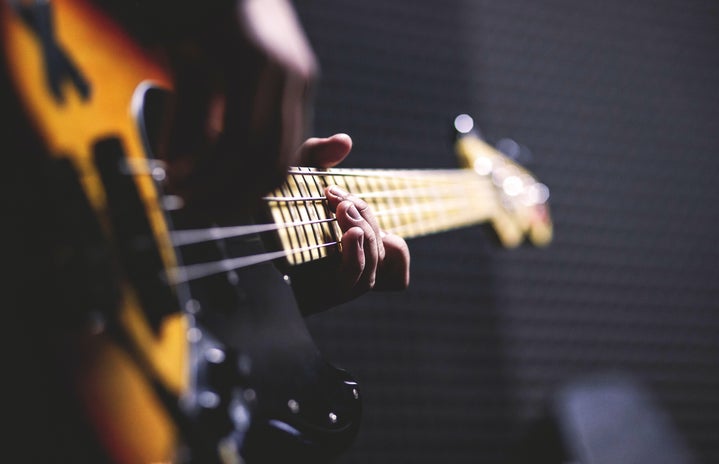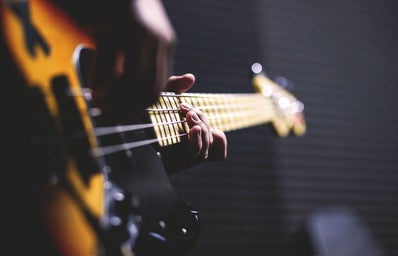It’s not a hidden fact that since I was a little girl, music has played a significant part in my life. I started playing the cornet when I was 8 years old, and soon after that I switched to my lovely instrument, the flugelhorn (don’t worry, nobody else knows what it is either). I also taught myself the guitar, learnt how to sing and took piano lessons. As I got to secondary school, I joined countless clubs and groups, and spent the rest of my high school and sixth form career attending rehearsals, concerts and contests every lunch time, after school and weekends.
It’s also not a secret, that for some time now I have dealt with mental health issues. Specifically, I was diagnosed with depression at the age of 18, and was later diagnosed with bipolar disorder type II, anxiety and mild OCD at the age of 19.
When my mental health was struck, I suddenly lost interest in the things I used to love the most – notably, music. I stopped playing my instrument, I stopped enjoying listening to music and no longer even sang along to my favourite tunes. Music had suddenly become a part of my past, and there was a void left to fill.
I took time out of university, for my recovery. I decided to try something; I went back to my brass band, Besses Boys Band. And I never looked back.
My recovery immediately took a turn in the right direction. It is so true when people say “music is good for the soul”, and I started to find my passion in playing again. My mood started to improve, and I began socialising with friends again.
The reason for this article is not to bore you with the details of my mental health, nor to coerce you into thinking that music will cure your problems in a heartbeat. That’s not true. What I’m here to do, is remind you what an important part music can play in letting out emotion, in relaxation, but most of all, what music can do to help your mental and physical health.
Never underestimate the power of lyrics. Sometimes, finding solace in the words of songs can have as much impact as reading a book. Often, when we’re sad, we turn to sad music to try and find comfort. There is nothing wrong with that. Psychologically speaking, music that reflects your mood creates a sympathetic tone, and will help you feel better. If you are feeling low, if you are excited, angry, full of joy or even feel nothing, there is always music to help your mood. Never beat yourself up for being sad and wanting to listen to music that reflects your mood; you should always listen to your mind and what it wants. Take some time out and let the words and power of a song fill your veins.
But music isn’t just for the private sphere, either. What I found most powerful when I finally returned to music, was the social side. I was in a room full of people, all there for the same reason; we were all there to play, listen, and engage with each other. Because music with friends really is often better for you. Sure, there are moments in life where you need to be on your own, to learn to enjoy your own company without the need for others, and music is a brilliant escape route for that. Yet, the comfort I found being in a room full of people who all wanted to be there for the sake of music and friends was incredible. Music and friendship go hand in hand; I mean, there is obviously nothing better than a night out where you and your friends are belting out the words to your favourite tunes.
Music can be a strange thing: it can make you visit places you didn’t intend to just through one word. It can make you cry (which is not a bad thing). Your favourite song can come on and a smile can come over your face in an instant.
I guess, what I’m trying to get at, is that music is so good for you. Personally, I don’t know where I would be in my recovery without having gone back and found my love in playing and listening again. Probably not this far along, in all honesty.
Please, never underestimate the power of music in helping you recover, in providing a safe-haven for your mind, or in building friendships and connecting with people. If you have lost music in your life, I urge you to take steps to find it again. Go for a walk with your i-pod and put on your favourite album, enjoy the peace it can bring to your mind. Go to a concert, of which there are plenty in Durham and Newcastle. Write a song, learn an instrument, or simply listen to the radio. Most importantly, though, please know how to look after yourself, whatever frame of mind or state of mood.
Music plays a big part in my therapy and recovery, and I hope others can find the passion behind it that I have been blessed with.
Dedicated to Besses Boys Band, without whom I’m not sure where I would be.

